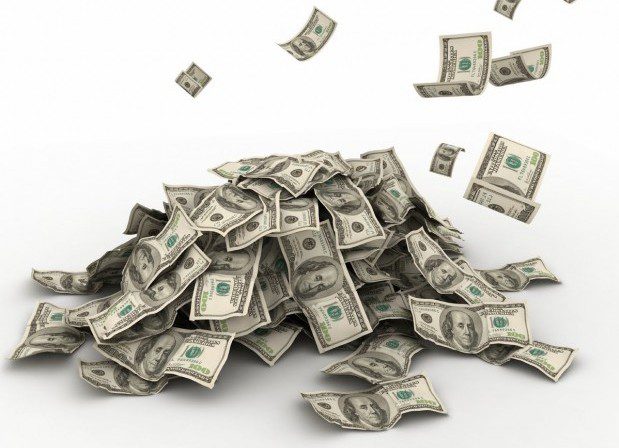A federal COVID relief program designed to assist entertainment venues that were largely shuttered during pandemic-related lockdowns was so poorly managed that hundreds of millions of dollars may have wound up in the hands of wealthy entertainers who didn’t need the money.
That’s the finding of an Insider investigation, which named names of some of the richest beneficiaries of the federal Shuttered Venue Operators Grant.
One example was Chris Brown, an R&B musician estimated to be worth about $50 million. He received $10 million in federal grants, Insider reported.
Another was Austin Richard Post, better known as Post Malone, who is thought to have a net worth in the same range. He also netted $10 million in grants.
And plenty of other wealthy entertainers profited from the grant program, which was administered — if one can even call it that — by the Small Business Administration.
The SBA handed out $14.5 billion (with a b) in taxpayer money that, unlike loans made under the Paycheck Protection Program, never has to be paid back.
Brown and Malone each received the maximum grant, $10 million, allowable under the program that was sponsored by New York Sen. Chuck Schumer, who claimed in a media release at the time that the funds would go to “independent live venue operators, independent movie theaters, and cultural institutions such as live performing arts organizations and museums.”
However, dozens of other artists who would be hard-pressed to show their need received similar SVOG money.
In fact, Insider pointed out one Los-Angeles-based financial management firm — NKSFB — that submitted grant requests for 97 separate clients who in turn reaped over a quarter of a billion dollars in free taxpayer funds.
No mention was made of how much of a cut the firm took in return for successfully obtaining the grants, which included one for “electronic-music superstar” Steve Aoki, who received almost the maximum at $9.9 million.
Perhaps his grant was smaller because his estimated net worth was larger — in the neighborhood of $130 million. That might help explain why rapper Lil Wayne, at $170 million, received “only” $8.9 million from the program.
However, the rules of the program allowed recipients to pay those who prepared their grant applications up to 15 percent of the funds received.
Those rules, however, were reportedly so byzantine that fully 30 percent of all applications were denied, as opposed to about one-tenth that rate for PPP loans, Insider noted.
Schumer was honored in April by the Recording Academy for getting the funding bill passed in the first place.
I was so honored to be recognized at this year’s @RecordingAcad #GRAMMYsontheHill!
My love for music runs deep.
That’s why I made it my mission to pass the Save Our Stages Act, and I’ll keep up the work to support the music and performance industry. pic.twitter.com/z1OCg22RAU
— Chuck Schumer (@SenSchumer) April 27, 2023
The SBA defended the program to Insider, claiming in a statement that it had “helped save thousands of entertainment venues and operators across the country during the COVID-19 pandemic.”
“SVOG was there to save us, and to carry us through,” Meredith Lynsey Schade, who was managing an off-off-Broadway theater company in 2020, told Insider in defending the program.
“We can, now, look back three years later and say there wasn’t enough oversight,” she said. “But the reality is that when there’s a fire that’s burning you look around and try to put that fire out.”
This article appeared originally on The Western Journal.
This story originally appeared on TheGateWayPundit

